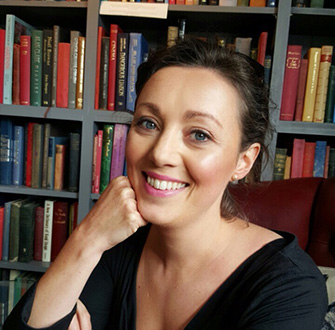
Cornelia is a lecturer in the School of Education, National University of Ireland, Galway. She is the former Programme Director (Education) on undergraduate teacher education programmes in Mathematics, Applied Mathematics and Computer Science. Cornelia is an elected Fellow of ISDDE and is a current member of their Executive.
1. What’s your earliest memory of doing mathematics?
One of my earliest memories of maths class is learning my tables in primary school, when I was in 3rd class with Miss Shankey. We had a terrific maths teacher later in secondary school, Ms Gleeson, and she certainly instilled in us a love for maths and developed our maths ability.
2. How has mathematics education changed in the time you have been involved in it?
The concepts of mathematics have not changed, but society certainly has! The introduction of a new mathematics curriculum in Ireland a few years ago for example, aimed to improve the mathematical experience of students in the classroom. This was accomplished by retaining the central elements and mathematical rigour, while changing the approach and emphasis in teaching, learning and assessment. The teacher’s role has become less about handing down facts and more about establishing a classroom environment in which students can gather evidence and formulate arguments with guidance along the way. Maths classes are now more concerned with conceptual understanding, and teaching children to adopt a scientific mindset and develop an understanding of rich mathematical ideas.
3. Tell me about a time in your career when something totally flabbergasted you.
I am always impressed each time I observe our pre-service teachers teach mathematics in a school environment. It is wonderful to witness them develop and excel as teachers – their insights, their learning, their development! Witnessing how they design their lessons integrating technology or accommodating diverse learners in their class, for example.
4. Do you practise mathematics differently in company?
I think that most of the time when I’m in the company of others discussing maths I am usually the one listening, watching and learning from them. I remember my PhD supervisor once saying that the longer you stay a student the better a teacher you will be!
5. Do you think a brilliant maths teacher is born or made?
I think they develop 🙂 To be an excellent maths teacher you need both the subject matter and pedagogical content knowledge – and these certainly develop over time. All the excellent maths teachers I have encountered may have had an innate mathematical ability, but they have worked hard at both their teaching and their maths.
6. What’s the most fun a mathematician can have?
I hope the same amount of fun as everyone else!
7. Do you have a favourite maths joke?
The problem is trigonometry jokes are too graphic, algebra jokes are too formulaic and arithmetic jokes just don’t add up. You could try the occasional statistics joke, but it’s an outlier, and probability jokes don’t stand a chance!
You can find Cornelia on:
Join the conversation: You can tweet us @CambridgeMaths or comment below.